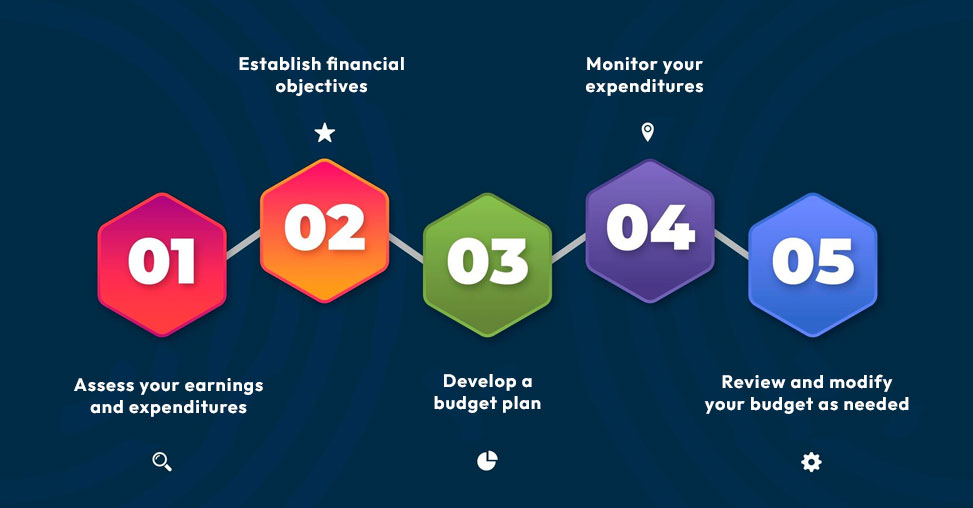Managing personal finances effectively is a skill that's crucial at every stage of life. Whether you're just starting your career, raising a family, or planning for retirement, mastering your money is essential for financial security and peace of mind. In this comprehensive guide, we'll delve into key strategies for successful personal finance tailored to different life stages, accompanied by actionable tips and advice.
Navigating the complexities of personal finance can seem daunting, especially with the myriad of financial products and services available. However, with the right knowledge and approach, you can empower yourself to make informed decisions that align with your financial goals. This guide aims to demystify the world of personal finance, providing you with practical insights and strategies to build a strong financial foundation and achieve long-term financial success. Whether you're aiming to pay off debt, save for a major purchase, or plan for retirement, the principles outlined here will equip you with the tools you need to take control of your financial future. So let's embark on this journey together and master the art of managing money effectively at every stage of life.
Starting Out: Building a Solid Foundation

- Establish a Budget: Begin by tracking your income and expenses to create a realistic budget. Allocate your income towards essentials like housing, transportation, groceries, and savings.
- Emergency Fund: Start building an emergency fund to cover unexpected expenses. Aim for at least three to six months' worth of living expenses in a separate savings account.
- Establish Credit Responsibly: Open a credit card account and use it responsibly to build a positive credit history. Pay off your balance in full each month to avoid high-interest charges.
- Start Saving for Retirement: Even in your early years, start contributing to retirement accounts like a 401(k) or IRA. Take advantage of employer matches if available.
Building a Solid Foundation: As you embark on your journey to financial independence, remember that consistency and discipline are key. Stick to your budget, continue to prioritize saving, and be mindful of your spending habits as you progress toward your financial goals.
Building Wealth: Growing Your Assets

- Invest Wisely: Educate yourself about different investment options such as stocks, bonds, mutual funds, and real estate. Diversify your investments to spread risk.
- Set Financial Goals: Define short-term and long-term financial goals. Whether it's buying a home, starting a business, or traveling, having clear goals will guide your financial decisions.
- Increase Your Income: Look for opportunities to boost your income through career advancement, side hustles, or passive income streams like investments or rental properties.
- Minimize Debt: Manage debt responsibly by paying off high-interest debt aggressively while maintaining low-interest debt like mortgages or student loans.
Growing Your Assets: As your wealth grows, it's important to reassess your financial goals periodically. Stay informed about investment opportunities, adjust your portfolio as needed, and continue to pursue avenues for increasing your income to sustain long-term financial growth.
Family and Responsibilities: Planning for the Future

- Protect Your Assets: Consider purchasing insurance policies such as health insurance, life insurance, disability insurance, and homeowners/renters insurance to protect yourself and your family.
- Estate Planning: Create a will and designate beneficiaries for your assets. Review and update your estate plan regularly, especially after major life events like marriage, divorce, or the birth of children.
- College Savings: Start saving for your children's education early with options like 529 plans or education savings accounts. Take advantage of tax benefits and compound interest to maximize savings.
- Teach Financial Literacy: Educate your children about money management from an early age. Instill good financial habits like budgeting, saving, and investing.
Planning for the Future: As your family grows and evolves, so too will your financial responsibilities. Stay proactive in managing your finances, involve your family in financial discussions, and continue to prioritize their well-being as you plan for the future.
Preparing for Retirement: Securing Your Future

- Assess Retirement Readiness: Evaluate your retirement savings and projected expenses to determine if you're on track for retirement. Make adjustments to your savings rate or investment strategy as needed.
- Retirement Accounts: Maximize contributions to retirement accounts and take advantage of catch-up contributions if you're over 50 years old. Consider consulting a financial advisor to optimize your retirement plan.
- Health Care Planning: Understand your healthcare options in retirement, including Medicare coverage and supplemental insurance plans. Factor healthcare costs into your retirement budget.
- Lifestyle Considerations: Think about how you envision your retirement lifestyle and adjust your savings goals accordingly. Consider downsizing, relocating, or pursuing hobbies that align with your budget.
Securing Your Future: As you approach retirement age, take proactive steps to ensure a smooth transition into this new phase of life. Review your retirement plan regularly, prioritize your health and well-being, and embrace the opportunities that retirement has to offer while safeguarding your financial security for the years ahead.
Conclusion:
Mastering your money is a lifelong journey that requires discipline, planning, and adaptability. By following these essential strategies tailored to each life stage, you can take control of your finances and build a secure financial future for yourself and your loved ones. Remember, it's never too early or too late to start managing your money effectively. Start today and reap the rewards tomorrow. Keep learning, stay informed, and make informed financial decisions to achieve your goals.
The products and information provided on this site are for informational purposes only and should not be considered as professional advice or endorsement. Always consult with a qualified expert or professional before making any decisions or purchases based on the content of this article.
